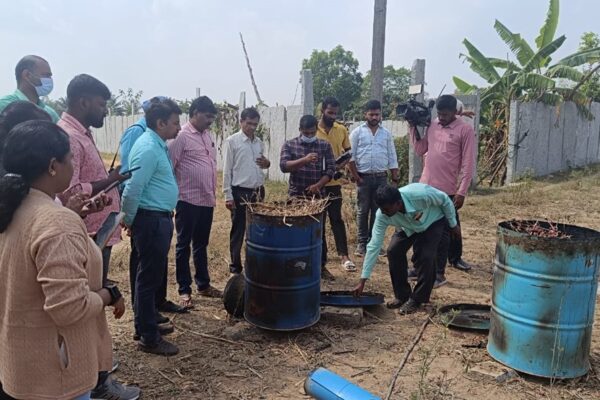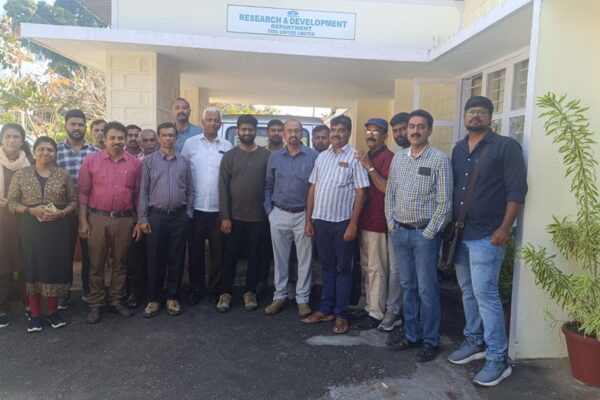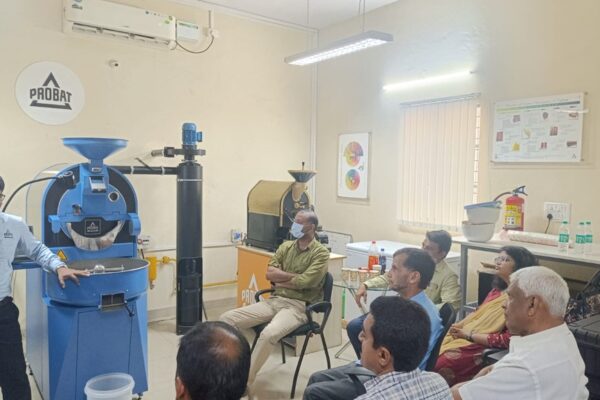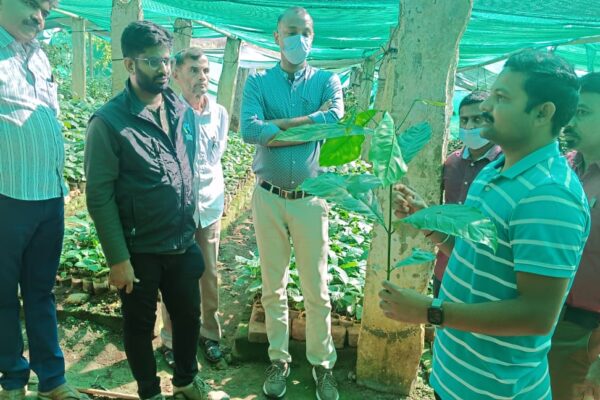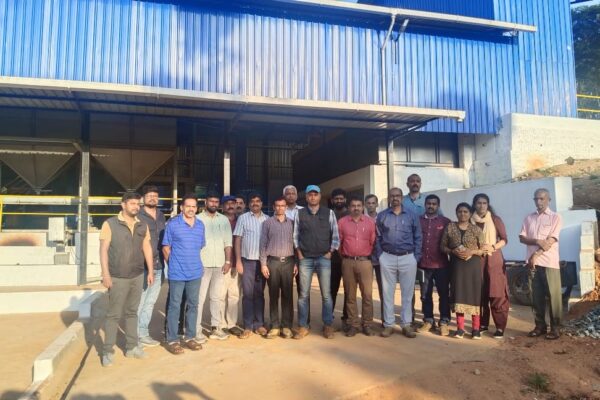Having a close working relationship with coffee producers, Mr. Jacob Jose from Sahyadri Organic Small Farmers Consortium has witnessed the primary issue faced by coffee producers: the lack of unity and expertise. He firmly believes that empowering farmers to take the lead in combating global warming is paramount. He states, ‘Adapting to new technologies and using agricultural resources efficiently are crucial steps in that direction.’ Hence, it is imperative that initiatives need to be conducted that provides an opportunity for producers to work towards critical aspects of climate change.
Under the Coffee Development Plan by Nespresso through Fairtrade Max Havelaar, Switzerland, Fairtrade NAPP has been supporting Fairtrade certified coffee Small Producer Organizations (SPOs). Through a series of meticulously crafted initiatives including trainings on best cultivation practices, exposure visits, and the introduction of new technologies, these producers are being equipped to enhance coffee productivity and quality. Given the importance, a recent exposure visit was organized by Fairtrade NAPP where 5 small producer organizations in India attended a workshop on various initiatives. The objective was to enhance farmers’ understanding and motivation towards adopting improved agricultural practices and addressing climate change issues through incorporating newer technologies such as biochar production and application. It overall raised farmers’ awareness regarding coffee processing and other initiatives involved in the coffee value chain.
 Producers embarked on a journey by visiting the Central Horticultural experiment Station in Chettalli to comprehend the plantation of nursery fruits and vegetables plants that can be integrated with Coffee plantations. These plants will ultimately, help in generating additional income for the coffee producers. This was followed by the CCRI research station in Chettalli, Coorg, Karnataka where the producers immersed themselves in the optimal agronomic practices for coffee cultivation. This includes understanding the clonal propagation, integrated pest and disease management and nursery management. Subsequently, a visit to the research and development wing of TATA coffee plantation further enriched their knowledge base. It offered them a firsthand exposure to best practices and the intricate process of separating beans from coffee cherries at TATA’s pulping unit.
Producers embarked on a journey by visiting the Central Horticultural experiment Station in Chettalli to comprehend the plantation of nursery fruits and vegetables plants that can be integrated with Coffee plantations. These plants will ultimately, help in generating additional income for the coffee producers. This was followed by the CCRI research station in Chettalli, Coorg, Karnataka where the producers immersed themselves in the optimal agronomic practices for coffee cultivation. This includes understanding the clonal propagation, integrated pest and disease management and nursery management. Subsequently, a visit to the research and development wing of TATA coffee plantation further enriched their knowledge base. It offered them a firsthand exposure to best practices and the intricate process of separating beans from coffee cherries at TATA’s pulping unit.
However, the journey doesn’t end at cultivation. The integration of biochar into farming practices stands as a beacon of sustainable agriculture. The subsequent day, producers explored an on-field training on the importance, production and application of Biochar. Biochar is a special material which is created when biological materials like crop residues, wood, manure etc. are heated without oxygen. This process of carbon sequestration is called pyrolysis. Hence, they are now able to utilize the farm residue and produce biochar on farm to adopt sustainable best practices. Packaging and retailing play a pivotal role in shaping the industry landscape. Thus, on the final day, producers gained firsthand insights into roasting, grinding, and retailing processes by visiting roasters and grinders.
The farmers grasped knowledge of the optimal farming practices, including the usage of biochar, its application and the potential value-added opportunities for coffee. Some expressed keen interest in setting up biochar units to aid in climate change mitigation. Ravi Kiran from Prasanna Ganapathi farmer foundation have gained a lot of knowledge from this programme and found that the 3 days training program was very useful for him. He particularly, praised the exposure visit to TATA Coffee on Research and development unit and pulping unit. He also felt that the biochar session was the best experience. He states, ‘We have to do these things to address climate change issues. Hence, we request Fairtrade NAPP to conduct such programs in future.’
In acknowledging the program’s impact, Jacob Jose states, ‘this programme facilitates information and best practices sharing among the group. I am truly grateful for the efforts put out by Dr. Gopinandan of CCRI, who literary shows us the real meaning of the term “Public Servant”. He stayed with us throughout the programme to make sure we were taking full advantage of the programme. I also appreciate Dr. Ramya from the Coffee Board and Fairtrade NAPP team for organising this fantastic event.’
As we reflect on the transformative journey undertaken by coffee producers during this exposure visit, it becomes evident that collective action is essential in navigating the challenges posed by climate change. Together, we can pave the way towards resilience, prosperity, and sustainability for all stakeholders in the coffee industry. Join us in this noble endeavour as we strive to build a brighter, more sustainable future for coffee communities worldwide.


